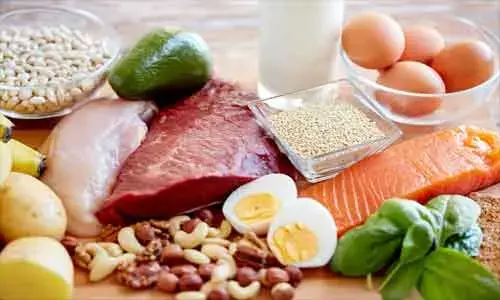- Home
- Medical news & Guidelines
- Anesthesiology
- Cardiology and CTVS
- Critical Care
- Dentistry
- Dermatology
- Diabetes and Endocrinology
- ENT
- Gastroenterology
- Medicine
- Nephrology
- Neurology
- Obstretics-Gynaecology
- Oncology
- Ophthalmology
- Orthopaedics
- Pediatrics-Neonatology
- Psychiatry
- Pulmonology
- Radiology
- Surgery
- Urology
- Laboratory Medicine
- Diet
- Nursing
- Paramedical
- Physiotherapy
- Health news
- Fact Check
- Bone Health Fact Check
- Brain Health Fact Check
- Cancer Related Fact Check
- Child Care Fact Check
- Dental and oral health fact check
- Diabetes and metabolic health fact check
- Diet and Nutrition Fact Check
- Eye and ENT Care Fact Check
- Fitness fact check
- Gut health fact check
- Heart health fact check
- Kidney health fact check
- Medical education fact check
- Men's health fact check
- Respiratory fact check
- Skin and hair care fact check
- Vaccine and Immunization fact check
- Women's health fact check
- AYUSH
- State News
- Andaman and Nicobar Islands
- Andhra Pradesh
- Arunachal Pradesh
- Assam
- Bihar
- Chandigarh
- Chattisgarh
- Dadra and Nagar Haveli
- Daman and Diu
- Delhi
- Goa
- Gujarat
- Haryana
- Himachal Pradesh
- Jammu & Kashmir
- Jharkhand
- Karnataka
- Kerala
- Ladakh
- Lakshadweep
- Madhya Pradesh
- Maharashtra
- Manipur
- Meghalaya
- Mizoram
- Nagaland
- Odisha
- Puducherry
- Punjab
- Rajasthan
- Sikkim
- Tamil Nadu
- Telangana
- Tripura
- Uttar Pradesh
- Uttrakhand
- West Bengal
- Medical Education
- Industry
Elderly require higher dietary protein than recommended, for good bone health: Study

USA: Higher protein intake (15% TEI) in older adults leads to better outcomes for optimal bone health, finds a recent study inThe Journals of Gerontology. Better outcomes include higher bone mineral density (BMD) at the lumbar spine, whole body, and the hip, and a lower risk of vertebral fracture. Dietary recommendations may underestimate the protein requirement in older adults for optimal bone health. Ashley A Weaver, Wake Forest School of Medicine,Winston-Salem, NC, and colleagues sought to determine associations of protein intake with BMD and fracture in earchers prepared a food frequency questionnaire for assessing protein as a percentage of total energy intake (TEI) in 2,160 old community-dwelling white and black older adults.For the purpose, the reser adults (73.5±2.8 years; 51.5% women; 35.8% black) in the Health, Aging, and Body Composition prospective cohort. Lumbar trabecular, cortical, and integral BMD was assessed by computed tomography at baseline and 5 years, and femoral neck, hip, and whole body BMD was assessed by dual-energy x-ray absorptiometry at baseline and 4 years. Fragility fractures over 5 years were adjudicated from self-report data collected every 6 months. Associations with tertiles of protein intake were assessed using analysis of covariance for BMD and multivariate Cox regression for fracture, adjusting for confoundersKey findings of the study include:
- Participants in the upper protein tertile (≥15% TEI) had 1.8-6.0% higher mean hip and lumbar spine BMD compared to the lower protein tertile (<13% TEI).
- Protein intake did not affect change in BMD at any site over the follow-up period.
- Participants in the upper protein tertile had a reduced risk of clinical vertebral fracture over five years of follow-up (Hazard Ratio: 0.36 vs. lower protein tertile).
Older adults with higher protein intake (≥15% TEI) had higher BMD at the hip, whole body, and lumbar spine, and a lower risk of vertebral fracture," wrote the authors.
Reference:The study titled, "Effect of dietary protein intake on bone mineral density and fracture incidence in older adults in the Health, Aging, and Body Composition study," is published in theJournals of Gerontology: Series A.DOI: https://academic.oup.com/biomedgerontology/advance-article/doi/10.1093/gerona/glab068/6157088
Dr Kamal Kant Kohli-MBBS, DTCD- a chest specialist with more than 30 years of practice and a flair for writing clinical articles, Dr Kamal Kant Kohli joined Medical Dialogues as a Chief Editor of Medical News. Besides writing articles, as an editor, he proofreads and verifies all the medical content published on Medical Dialogues including those coming from journals, studies,medical conferences,guidelines etc. Email: drkohli@medicaldialogues.in. Contact no. 011-43720751
Next Story


